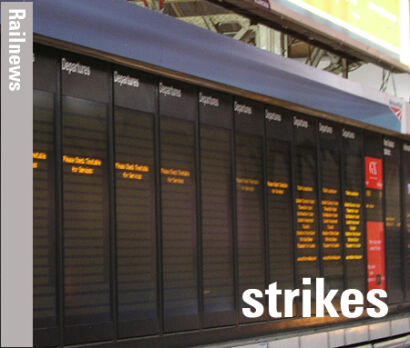Members of the RMT have rejected the latest pay offer from Network Rail.
The proposed increase would have been 5 and 4 per cent over two years, but the union is opposing the offer, along with job losses. The majority against the settlement was 63.6 per cent, and the turnout was 83 per cent.
The result of the ballot was announced on the eve of a 48-hour national strike, which started this morning. Only limited services are running on certain routes, and many lines have no trains at all. The walkout has affected nearly all operators in England, but services in Scotland and Wales are also disrupted by the lack of Network Rail signallers.
Network Rail chief executive Andrew Haines said there had been ‘clearly a significant number of Network Rail colleagues who want this deal, but are caught up by these needless strikes and collective bargaining’, while rail minister Huw Merriman described the walkouts as ‘very damaging’. He urged RMT general secretary Mick Lynch to ‘come back to the table’.
However, Mr Lynch said: ‘This is a huge rejection of Network Rail's substandard offer and shows that our members are determined to take further strike action in pursuit of a negotiated settlement. The government is refusing to lift a finger to prevent these strikes and it is clear they want to make effective strike action illegal in Britain.
‘We will resist that and our members, along with the entire trade union movement will continue their campaign for a square deal for workers, decent pay increases and good working conditions.’
The Department for Transport said it had helped with a ’fair and improved offer’, and that the pay increases were more than those in the private sector.
The strikes today and tomorrow are set to be followed by a second 48-hour walkout on Friday and Saturday, and Network Rail staff are also due to strike between the evening of 24 December and 27 December, disrupting Christmas engineering work.
If there is no settlement in the meantime, two more 48-hour national strikes have also been called for 3-4 and 6-7 January.


